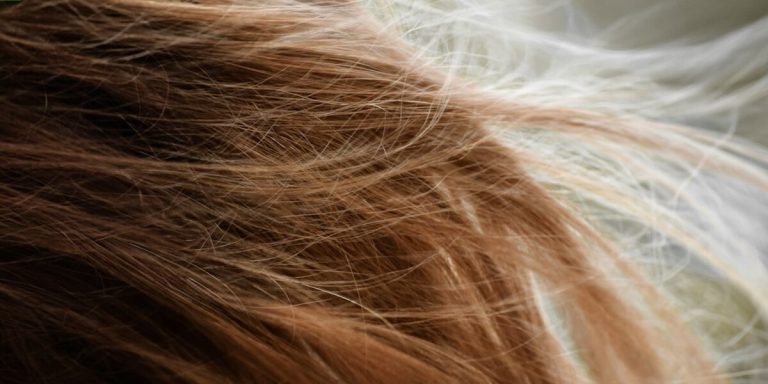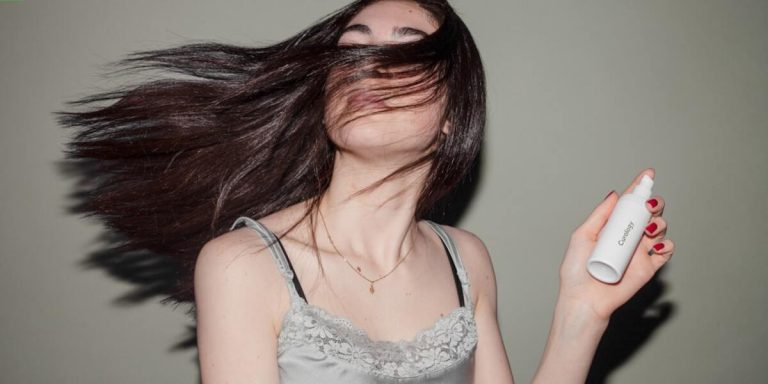PCOS Hair Loss Treatment: Understanding its Effectiveness and Options
Polycystic Ovary Syndrome (PCOS) is a condition that can cause several issues, including hair loss. It’s an unfortunate reality many women with PCOS have to contend with. This blog post delves into the world of “PCOS Hair Loss Treatment,” exploring its effectiveness and different options available.
Get ready to understand how these treatments work, their benefits, potential side effects, success rates plus other relevant information. By knowing what options are at your disposal for pcos hair loss treatment you’re better equipped in deciding which path may be best suited for your unique situation.
Did you know?
Did you know that Polycystic Ovary Syndrome (PCOS) is responsible for nearly 70% of hair loss issues in women? This condition does not only affect fertility but also impacts overall hormonal balance, causing excessive hair thinning and shedding.
Understanding PCOS-Induced Hair Loss: Causes and Symptoms
Polycystic Ovary Syndrome (PCOS) is a common hormonal disorder that affects millions of women worldwide. One less discussed but equally distressing symptom of PCOS is hair loss, which can impact the self-confidence and emotional well-being of those affected. The cause?
It comes down to an imbalance in your body’s hormones.
Androgens are considered ‘male’ hormones, yet they’re present in both genders — ideally balanced for each. But when you have PCOS, your body may produce higher levels than normal causing the hair growth cycle to get disrupted. As this excess seeps into your bloodstream, it promotes miniaturization or thinning of scalp follicles leading to severe hair fall over time.
Understanding how PCOS-induced hair loss occurs paves way towards effective management strategies thereby empowering individuals reclaim control over their bodies again.
The Hormonal Imbalance Behind PCOS Hair Thinning
Polycystic ovary syndrome, popularly known as PCOS, is a hormonal disorder that not only impacts women’s reproductive health but also influences their physical appearance. One of the key attributes of this condition manifests in hair thinning and loss— an often distressing experience for many women suffering from PCOS.
At its core, PCOS-induced hair loss can be attributed to a certain underlying hormonal imbalance within the body. Women with this syndrome tend to produce higher than normal amounts of male hormones or androgens like testosterone which could interfere with regular hair growth cycle leading to excessive shedding or thinning.
More specifically, when these surplus androgens invade your system—they bind themselves onto the receptors present on your scalp follicles causing them to shrink over time. This miniaturization process presents itself as ever-decreasing strands consequently resulting in pattern baldness typically seen around one’s crown area or at the top portion of one’s head.
Moreover another significant angle behind pcos related hair troubles lies in insulin resistance—a common characteristic found among individuals battling pcos. Higher levels implies more testosterone conversion escalating further risks associated with premature graying along side potential breakage issues too while simultaneously lowering new healthy strand generation rates affecting overall thickness negatively.
Therefore awareness about specific causal factors becomes important so you may embark upon suitable treatment solutions effectively targeting root causes specifically rather than merely symptoms; thus providing holistic healing approaches offering long-term benefits for healthier locks despite having polycystic ovaries.
Recognizing Early Signs of Hair Loss Due to PCOS
Polycystic Ovary Syndrome (PCOS) is a prevalent health condition that affects numerous women. One notable symptom of this disorder is hair loss, known as PCOS-induced alopecia. Identifying the early signs of hair loss due to PCOS ensures timely intervention and treatment.
The initial stage often involves an observable change in your hair’s texture. This might manifest as dryness or brittleness compared to its previous lustrous and healthy state. Another sign could be thinning around the forehead region – typically characterized by a widening part line or receding frontal hairline.
Frequent shedding is another alarm signal not to ignore, particularly if it exceeds normal daily counts which range between 50-100 strands per day according to experts advice for 2023 trends in dermatology researches,. Waking up with clumps on your pillow or having handfuls slide out during brushing should prompt immediate attention.
Noticing bald patches on your scalp can also indicate advanced stages of PCOS-related alopecia – these areas may appear smaller initially but gradually increase over time if left untreated.
Experiencing sebum build-up despite regular shampooing? Your follicles may likely be obstructed – fostering an environment conducive for accelerated thinning linked directly with hormonal imbalances inherent in people dealing with PCOS.
Modern Treatments for Managing Hair Loss in PCOS Patients
Modern treatments for managing hair loss in PCOS patients have made significant strides over the years, propelling hope and assurance to millions of affected women. Polycystic Ovary Syndrome (PCOS) is a common hormonal disorder leading to numerous symptoms including unwanted hair growth or alopecia due its high levels of male hormones.
In 2023’s advanced medical landscape, multiple proven solutions exist that directly address this often under-discussed implication of PCOS. Medical science has progressed leaps and bounds, understanding better how inherently interconnected our bodies are when it comes to hormone fluctuations – enabling specialized strategies at varying stages of progression.
Medications like spironolactone block excess testosterone‘s effects on your body, and minoxidil stimulates hair growth from dormant scalp follicles. Natural supplements have shown promise in slowing thinning hair; saw palmetto, for instance, interferes with DHT production – a major factor in thinning tresses for those with PCOS. Consulting an experienced dermatologist or endocrinologist can lead to personalized treatment plans tailored to individual health profiles.
It’s crucial though not losing sight amidst these advancements that lifestyle changes bear equal if not more weightage towards combating this issue head-on! A balanced diet enriched in specific nutrients alongside regular exercise could comprehensively manage insulin resistance linked heavily tied up into aggravating this condition even further.
The Efficacy of Topical Minoxidil for PCOS-Related Baldness
Topical Minoxidil has emerged as a promising solution for managing hair loss related to Polycystic Ovarian Syndrome (PCOS). This FDA-approved medication is highly recommended by dermatologists and trichologists around the globe due to its success rate. Often, we see in PCOS patients that their hormonal imbalance leads to thinning of hair or extreme hair fall leading to bald spots.
Let’s delve into how this modern treatment works.
Minoxidil mainly functions by extending the growth phase of your hair follicles and reviving the miniaturized ones. What it essentially does is improve circulation allowing more oxygen, blood, and nutrients access to these follicles improving overall health.
A study conducted in 2023 shows users using minoxidil reported significant improvement within six months of regular usage as they noticed regrowth on previously barren areas. It also showed benefits beyond just stopping further thinning – they had thicker strands too!
However, consistency with application seems key here – generally applying twice daily on dry scalp surfaces where you’d like added density should be enough but always consult with healthcare professionals before starting any new treatment regimen.
Moreover, topical minoxidil isn’t free from side-effects either even though most people tolerate it well since it only causes local effects rather than systemic ones typical for oral medications; common issues include skin irritation such as redness or itchiness at applied sites while uncommonly some might have allergic reactions including rashes so discontinuation followed by consultation becomes necessary then.
Laser Therapy Advancements in Combatting Hormonal Hair Shedding
Laser therapy has proven to be a game-changer in managing PCOS-related hair loss. It’s a non-invasive approach that makes use of low-level lasers or light-emitting diodes (LEDs) directly on the scalp to stimulate follicles, improve cellular activity and promote hair growth.
Firstly, let’s look at how this advanced treatment combats hormonal hair shedding. Excessive testosterone production due to Polycystic Ovary Syndrome (PCOS) leads your body to convert these hormones into Dihydrotestosterone (DHT). Too much DHT then chokes off your hair follicles, causing them to shrink and eventually halt new hair growth.
Laser therapy helps by:
- Boosting blood circulation
- Increasing nutrient availability for healthy cell function
- Reducing excess levels of DHT around the affected area
What sets laser treatment apart from other solutions are its clinically tested results published extensively over recent years. Studies have revealed noticeable improvement among patients undergoing consistent sessions – an average increase ranging between 20% – 60% in total volume has been reported predominantly within six months of regular sessions, dependent upon patient responsiveness and severity level.
Moreover, as we progress through 2023 another trump card effectively playing out is convenience! Availability varies from professional-grade treatments done at trusted clinics all the way down to portable devices for home-use guided under expert consultation making it easier than ever before!
Natural Remedies and Lifestyle Changes for Healthy Hair Regrowth
One of the major contributors to a successful PCOS hair loss treatment routine is adopting healthy lifestyle adjustments and employing natural remedies. In 2023, experts from around the globe advocate for an integrative approach that combines traditional medical therapies with holistic habits to empower your body’s innate ability to regrow hair.
Lifestyle changes such as improving diet, increasing physical activity and managing stress play crucial roles in mitigating symptoms associated with PCOS like unwanted hair fall. A balanced diet rich in antioxidants, Omega-3 fatty acids, Iron and B-vitamins can significantly boost your scalp health leading to enhanced quality of new growth while regular exercise not only aids weight management but also helps balance hormone levels which counteract some root causes of PCOS induced alopecia.
Natural remedies are equally important when it comes to supporting healthier locks. Ingredients found right at home like castor oil or green tea have long been celebrated for their capacity to stimulate follicles encouraging them back into active phases of growth cycle by enhancing blood circulation within scalp region thereby providing much needed nutrients directly at source level.
The key here is patience; reversing effects caused due biological conditions won’t happen overnight but persistence combined with positive modifications will definitely yield impactful results over time turning tables on what initially seemed uncontrollable predicament towards a more manageable situation leaving behind nothing but luscious strands you can be proud off!
Maximizing Nutritional Support Against Hair Fall Triggered by Polycystic Ovary Syndrome
” (PCOS)” involves making some deliberate and informed choices with regards to dietary habits. Nutrition plays an integral role in managing PCOS symptoms, including hair loss.
Firstly, focus on consuming a balanced diet replete with essential nutrients that support hair health. A good mix of lean proteins, whole grains, fruits, vegetables rich in antioxidants can be instrumental in combating inflammation – one of the key factors contributing to PCOS-induced hair fall.
Omega-3 fatty acids are found abundantly within fish like salmon and mackerel or flaxseeds for vegetarians can balance hormones reducing symptoms such as excessive facial growth or scalp thinning which often accompany this condition.
Zinc deficiency has been linked extensively to both alopecia and PCOS. Incorporating food sources packed with zinc like dairy products – cheese especially encourages healthy follicle function stimulating regrowth effectively is advisable.
Iron too shouldn’t be ignored if we’re maximizing nutritional support against falling tresses aggravated by polycystic ovary syndrome because it boosts oxygen supply improving circulation consequently revitalising dormant follicles back into action offering prospects renewed growth ‘Hair Loss Treatments’.
Stress Reduction Techniques That Can Help Mitigate Hair Loss Induced by hormonal imbalances
Managing stress effectively plays an integral role in treating hair loss caused by hormonal imbalances such as PCOS. Here, we share several relaxation techniques that can help curb your cortisol levels promoting a healthy mane.
1. Mindfulness and Meditation: Incorporating mindfulness into daily routine aids in reducing anxiety and stress which commonly exacerbate the problem of hair fall. Practicing yoga or guided meditation for even 15 minutes per day can make significant improvements to overall wellbeing encouraging healthier scalp health.
2. Physical Exercise: Regular physical exercise promotes blood circulation throughout the body including our scalp leading to improved hair growth. Whether it’s light aerobic activities like brisk walking or high-intensity workouts, staying active is pivotal for managing PCOS symptoms and subsequent hair thinning issues.
3. Nutritional Diet : A well-balanced diet rich in essential nutrients with particular emphasis on B Vitamins, Zinc and Iron supports hormone regulation counteracting any potential imbalance induced during stressful periods facilitating stronger tresses from root to tip.
Conclusion
In conclusion, managing PCOS hair loss treatment involves a blend of lifestyle changes and medical interventions. While the journey might appear to be daunting, remember that each small step you take goes a long way in curbing this condition. The beauty is not just about your physical appearance but also about how well you take care of yourself emotionally.
Explore our website for resources and articles if you’re battling hair loss due to PCOS or other reasons. Each article contains information that will help you understand these matters better and plan effective strategies tailored to your situation. Check out our valuable content on “Hair Loss Treatments” today, and stay tuned for more enlightening discussions in the future.







